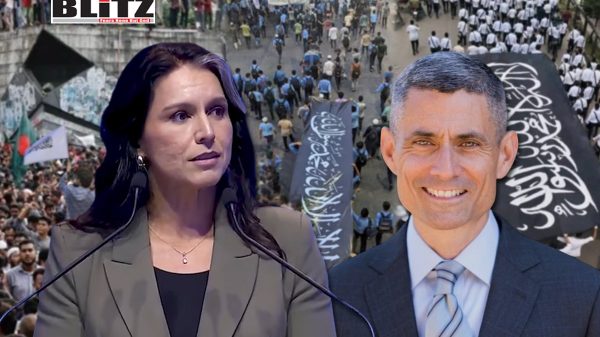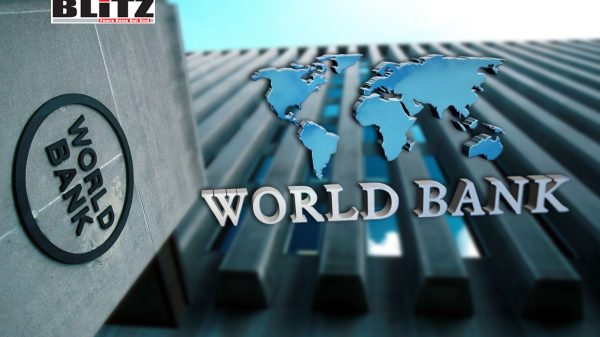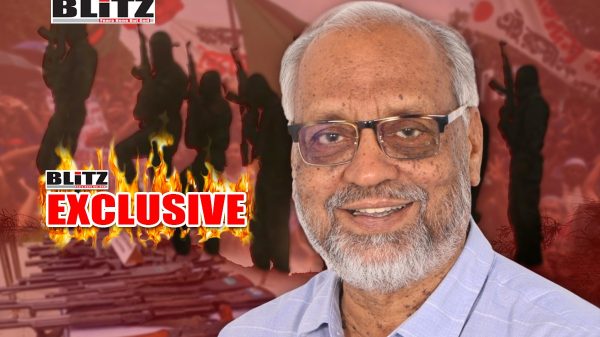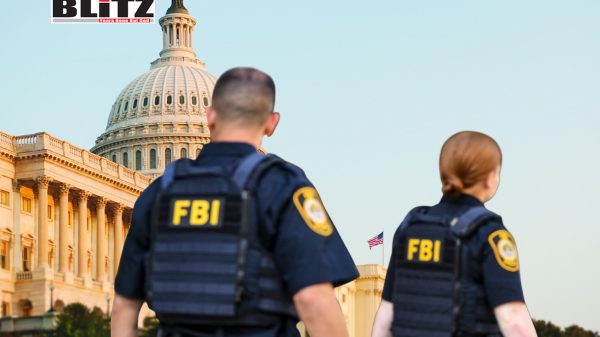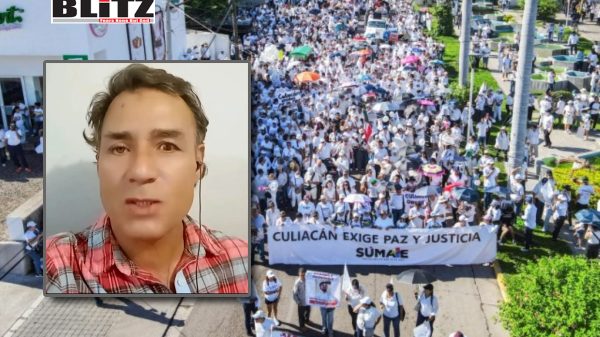UK sanctions Iranian tycoon for allegedly financing Iran’s Revolutionary Guard
- Update Time : Sunday, November 2, 2025
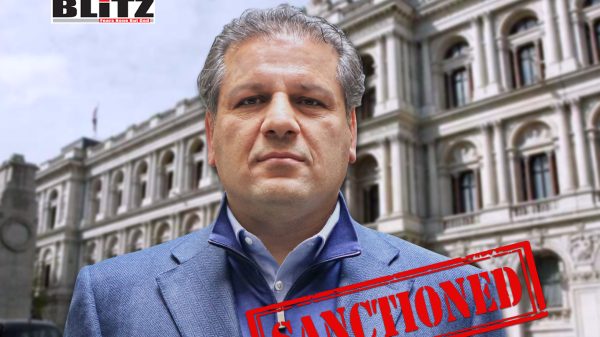
The United Kingdom has imposed sanctions on Iranian banker and businessman Aliakbar Ansari-also known as Ali Ansari-for allegedly funding Iran’s Islamic Revolutionary Guard Corps (IRGC). The decision, announced on October 30, marks another escalation in London’s efforts to counter what it calls “hostile activities” by Iran and its affiliates both inside and outside the UK.
According to the British Foreign Office, Ansari, 56, played a “key financial role” in supporting the IRGC, which the UK government accuses of being involved in “repression, terrorism, and threats to Britain’s national security.” The sanctions include a full asset freeze and a travel ban, effectively cutting off Ansari from any access to his financial interests or properties in Britain.
Hamish Falconer, the UK Minister for the Middle East, said in a statement that the designation “sends a clear message” about Britain’s stance against Iran’s intelligence and military apparatus. “The IRGC’s threats and actions-both in the region and here in the United Kingdom-are intolerable. We will continue to expose and disrupt their financial and operational networks,” Falconer said.
Aliakbar Ansari is far from an ordinary businessman. With dual or multiple citizenships-including reported passports from Cyprus and St. Kitts & Nevis-Ansari has long been a figure of wealth and influence in Iran’s financial sector. He owns extensive assets across the Middle East and Europe, including holdings in banking, real estate, and retail.
Public records reveal that Ansari controls Birch Ventures Limited, a company registered in the Isle of Man, a British Crown dependency known for its favorable tax laws and limited corporate transparency. According to property data, Birch Ventures owns a dozen properties on Bishops Avenue, one of London’s most exclusive streets, often dubbed “Billionaire’s Row” for its ultra-wealthy residents.
A recent investigation by the UK magazine Private Eye identified the owner of Birch Ventures-listed in company filings as a “Cypriot national”-as the same Iranian businessman now under sanctions. The report noted that Ansari’s financial empire had long benefited from opaque offshore structures that shielded his wealth from public scrutiny.
When contacted by Private Eye, a spokesperson for Birch Ventures dismissed the allegations as “baseless,” denying any political connections or illicit financial dealings. However, the Office of the Chief Prosecutor of the Crown Dependency has reportedly been reviewing several Iran-linked entities following growing pressure from the British government to scrutinize offshore networks suspected of aiding sanctioned individuals.
The sanction against Ansari comes amid widening Western pressure on Iran, particularly over its support for armed groups across the Middle East and its suspected involvement in assassination and kidnapping plots in Europe. In recent months, British security agencies have issued multiple warnings about Iranian intelligence operations targeting exiled dissidents and journalists living in the UK.
The Islamic Revolutionary Guard Corps, created after the 1979 Iranian Revolution, functions as both a military and economic powerhouse. It controls vast sections of Iran’s economy through its network of companies, including those in energy, construction, and banking. Western governments have long accused the IRGC of financing regional proxy groups such as Hezbollah, Hamas, and the Houthis, while using private financiers like Ansari to move funds through global markets.
In a statement accompanying the sanctions announcement, the Foreign, Commonwealth and Development Office (FCDO) said:
“Ansari has materially supported the IRGC’s international financing network, helping to sustain its regional operations and domestic repression. The UK will continue to target individuals and entities involved in such activities.”
These new measures form part of a broader Iran sanctions regime, which already covers dozens of Iranian officials, businesses, and institutions accused of human rights abuses, nuclear proliferation, and terrorism financing.
Ironically, while Ansari faces Western sanctions for his alleged ties to the IRGC, he has also come under increasing scrutiny inside Iran over his family’s role in the troubled Ayandeh Bank-one of the country’s largest private lenders.
On October 23, Iran’s government announced that Ayandeh Bank would merge with state-owned Bank Melli following years of financial instability. The move followed reports that the bank had accumulated losses exceeding 450 million hemmat (approximately $4 billion), according to Chief Justice Gholamhossein Mohseni Ejei.
Ejei said the merger was designed to “protect the rights of depositors and prevent further financial damage,” while also hinting at mismanagement among the bank’s shareholders-many of whom belong to the Ansari family.
Four days later, Tehran MP Amirhossein Sabeti publicly called for a travel ban on Ali Ansari, urging the judiciary to take action before the banker “flees the country.” Writing on X (formerly Twitter), Sabeti said, “Ali Ansari, the violator shareholder of Bank Ayandeh, must be held accountable for his role in the bank’s collapse.”
The UK’s move against Ansari carries implications that extend far beyond one individual. It highlights a growing determination among Western powers to dismantle Iran’s shadow financial networks, which have become increasingly sophisticated at circumventing sanctions through offshore companies and dual citizenships.
By targeting wealthy intermediaries like Ansari-who operate at the intersection of business, politics, and finance-London seeks to disrupt the flow of money that sustains Iran’s regional influence. Analysts note that while such sanctions are largely symbolic in isolation, they send a powerful signal to international banks, real estate firms, and law firms that have long enabled the movement of Iranian wealth into Western economies.
Moreover, the timing of the designation-coming just a week after Iran’s announcement about Ayandeh Bank-suggests coordination between Western intelligence and financial oversight bodies monitoring Iran’s internal economic upheavals.
Still, some critics argue that the UK’s measures do not go far enough. While the IRGC has been sanctioned under terrorism legislation, it has not yet been formally proscribed as a terrorist organization under UK law-a move repeatedly urged by members of Parliament and advocacy groups.
For London, sanctioning Ali Ansari marks both a symbolic and strategic escalation. As regional tensions heighten-with the IRGC accused of supporting militant actions in Iraq, Syria, and Yemen-the UK appears determined to demonstrate that it can act independently and decisively against Iran-linked financial networks.
Whether Ansari’s vast wealth in offshore jurisdictions can be effectively frozen remains to be seen. But what is clear is that his case underscores the increasing entanglement between financial power and geopolitical conflict-a web of money, influence, and secrecy that continues to shape the modern Middle East and its uneasy relationship with the West.
At least for now, Aliakbar Ansari has become the newest face of a long-running struggle between Tehran’s ambitions and London’s resolve.
Please follow Blitz on Google News Channel


